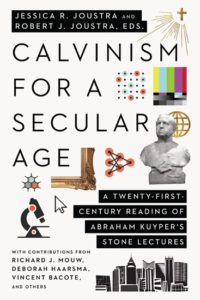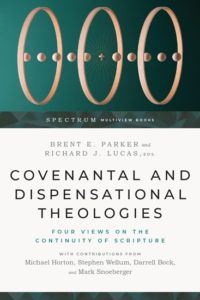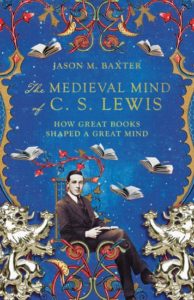
Author’s Corner
Each week on Credo we welcome you to join us in the Author’s Corner where we will meet a set of authors whose recent books deserve your attention and might even help you grow in your knowledge of theology, history, philosophy, and the scriptures. We hope the Author’s Corner can keep you up-to-date on the most important books published today and where you can find them.
On today’s Author’s Corner we present you with a selection of works from InterVarsity Press.
C alvinism for a Secular Age: A Twenty-First-Century Reading of Abraham Kuyper’s Stone Lectures (2022) edited by Jessica R. Joustra and Robert J. Joustra
alvinism for a Secular Age: A Twenty-First-Century Reading of Abraham Kuyper’s Stone Lectures (2022) edited by Jessica R. Joustra and Robert J. Joustra
Abraham Kuyper, the Dutch Neo-Calvinist theologian, pastor, and politician, was well-known for having declared that there is “not a square inch” of human existence over which Jesus Christ is not its sovereign Lord.
This principle is perhaps best reflected in Kuyper’s writings on Calvinism originally delivered as the Stone Lectures in 1898 at Princeton Theological Seminary. These lectures reflecting on the role of the Christian faith in a variety of social spheres—including religion, politics, science, and art—have become a touchstone for contemporary Reformed theolog
How might the lectures continue to inform the church’s calling in a secular age? In this volume, Jessica Joustra and Robert Joustra bring together theologians, historians, scientists, and others to revisit Kuyper’s original lectures and to critically consider both his ongoing importance and his complex legacy for today.
C ovenantal and Dispensational Theologies: Four Views on the Continuity of Scripture (2022) edited by Brent E. Parker and Richard J. Lucas
ovenantal and Dispensational Theologies: Four Views on the Continuity of Scripture (2022) edited by Brent E. Parker and Richard J. Lucas
How does the canon of Scripture fit together?
For evangelical Christians, there is no question about the authority of Scripture and its testimony to the centrality of Jesus Christ in God’s salvation plan. But several questions remain: How do the Old Testament and New Testament relate to each other? What is the relationship among the biblical covenants? How should Christians read and interpret Scripture in order to do justice to both its individual parts and its whole message? How does Israel relate to the church?
In this volume in IVP Academic’s Spectrum series, readers will find four contributors who explore these complex questions. The contributors each make a case for their own view—representing two versions of covenantal theology and two versions of dispensational theology—and then respond to the others’ views to offer an animated yet irenic discussion on the continuity of Scripture.
Views and Contributors:
- Covenant Theology: Michael S. Horton, Gresham Machen Professor of Systematic Theology and Apologetics, Westminster Seminary California
- Progressive Covenantalism: Stephen J. Wellum, professor of Christian theology, Southern Baptist Theological Seminary
- Progressive Dispensationalism: Darrell L. Bock, Senior Research Professor of New Testament Studies, Dallas Theological Seminary
- Traditional Dispensationalism: Mark A. Snoeberger, professor of systematic theology and apologetics, Detroit Baptist Theological Seminary
T he Medieval Mind of C. S. Lewis: How Great Books Shaped a Great Mind (2022) by Jason M. Baxter
he Medieval Mind of C. S. Lewis: How Great Books Shaped a Great Mind (2022) by Jason M. Baxter
C. S. Lewis had one of the great minds of the twentieth century.
Many readers know Lewis as an author of fiction and fantasy literature, including the Chronicles of Narnia and the Space Trilogy. Others know him for his books in apologetics, including Mere Christianity and The Problem of Pain. But few know him for his scholarly work as a professor of medieval and Renaissance literature.
What shaped the mind of this great thinker? Jason Baxter argues that Lewis was deeply formed not only by the words of Scripture and his love of ancient mythology, but also by medieval literature. For this undeniably modern Christian, authors like Dante and Boethius provided a worldview that was relevant to the challenges of the contemporary world.
Here, readers will encounter an unknown figure to guide them in their own journey: C. S. Lewis the medievalist.

